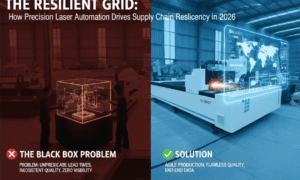In an American cannabis market that is pegged to hit $47.3 billion in legal spending by 2027, there is plenty of prognosticating about what the industry will look like over the next decade. From CBD being more popular than Jesus to an exploding market for hemp and cannabis jobs, the hype is peaking around the potential of the emerging cannabis industry in America.
However, discerning the signal from the noise can be difficult.
CBD products are still undergoing much-needed clinical research to verify mostly anecdotal evidence, and while promising early results are available, there is significant work to be done. On the other side of the market, marijuana cultivation is also booming, but the necessary infrastructure is still very immature.
The cannabis industry has revolutionized indoor growing facilities and methods in hydroponics, but the market is beginning to move past the initial burst of cultivation-specific business models.
“Cannabis investors are wary about getting into the cultivation space now,” says Stephen Boyd, CEO of Growpacker. “It’s already all about the cannabis 2.0 picture, and investors should take notice of the next chapter in the cannabis sector — it’s no longer about cultivation and grow facilities.”
Boyd’s sentiment reflects a broader trend in a sector that is rapidly industrializing, and many public firms are having a hard time keeping pace with the evolution in the industry.
“Stock prices are plunging, lofty valuations are deflating, regulatory landscapes remain in flux, and now deals are coming off the table,” detailed a CNN piece in October.
Grappling With A Changing Market
One of the problems in the explosion of the cannabis industry over the last several years was that there was a surplus of money and ideas but not much detailed plans on what to do with either. Kristen Nichols, in the 2019 Hemp & CBD Industry Factbook, described it as:
“Imagine running a race with brand-new shoes and a burst of energy but no idea what the course looks like. That’s somewhat the position in which today’s hemp industry finds itself.”
Indeed, despite success stories that offer previews into a future cannabis and hemp industry, there are an entourage of failed startups and wasted capital littered along the way. Many public companies are facing capital crunches as their margins slim, and formerly common, lucrative projections of startup valuations are becoming rarer by the day.
Regulatory uncertainty in many areas of the country has led to hesitation for more sunk costs into infrastructure. In many instances, the hype of CBD plus the 2018 Farm Bill sparked surpluses of hemp, which unfortunately remain on the sidelines as hemp farmers grapple with a pullback of demand. Further fueled by the curtailment of soy and grains trapped in the China-US trade dispute, many farmers turned to profitable hemp farming.
But that thrust of supply quickly created a problem. According to a survey by Whitney Economics in July, roughly 65 percent of hemp farmers lack a buyer for their crop this season.
Even with companies swimming in cash from sales of CBD extraction machines, the infrastructure is not mature enough to support the market.
But there are a few firms that are emerging as flagship previews of what the future cannabis industry might look like — peppering in some creativity with conventional business acumen.
Consolidating An Emerging Market & Building High-Tech Solutions
Growpacker is a leading cannabis co-packing company in California that has become a multi-pronged industry giant.
Built on a business foundation of vertically incorporating the formulation, manufacturing, packing, and distribution process, Growpacker has constructed a turnkey business operation that streamlines concept-to-shelf development for brands. The firm has built out a sprawling state-of-the-art facility for conducting easy, high-velocity product-to-market pipelines for brands that need improved cashflow.
“Our cannabis manufacturing plant is one of the most advanced in California,” says Boyd. “We offer pre-made beverage and edible formulations, in house laboratory for custom formulations, and multiple tech-driven autonomous production lines.”
The facility can manufacture nearly any cannabis product, including vape cartridges, weighed flower, pre-rolls, beverages, and edibles. The firm wields advantages like a legal compliance department, proprietary infusion technologies, high-tech consumer goods packaging, pasteurization and processing, and quality control.
With so many companies focusing on hemp and marijuana cultivation rather than critical infrastructure, Growpacker appears to have hit the mark. In doing so, the company has garnered partnerships with some of the world’s largest companies.
But Growpacker hasn’t only stopped at high-grade formulation, manufacturing, and distribution. Building on its early success, Growpacker has even extended its reach to the investment and accelerator space, with its Incubator and Accelerator arm. By crafting agreements with brands looking to tap into Growpacker’s streamlined dispensaries pipeline in California, startups in the incubator and accelerator trade small equity or partnership privileges with the firm in return for bootstrapping their product line.
The first accelerator partner? Ceria Beverages, the THC-infused craft beer brand from brewmaster Keith Villa — founder of Blue Moon.
In a market rife with infrastructure struggles and an uncertain regulatory framework, the audacity to take a forward-thinking risk on the explosion of THC-infused craft beer is a luxury many firms don’t have. Villa even became a Strategic Advisor with Growpacker, and the Grainwave THC-infused Belgian-style white ale is pegged for release in California in December.
In a market of lucrative potential and endemic uncertainty, Growpacker is painting an optimistic vision of a future high-tech cannabis industry.
“When you integrate high-speed machinery with technology, especially in an emerging industry, you create a lot of new opportunity in the market” says Boyd. “This type of positioning allows us to leverage our assets to create exponential value for any license type in the state, from cultivation to retail.”



































